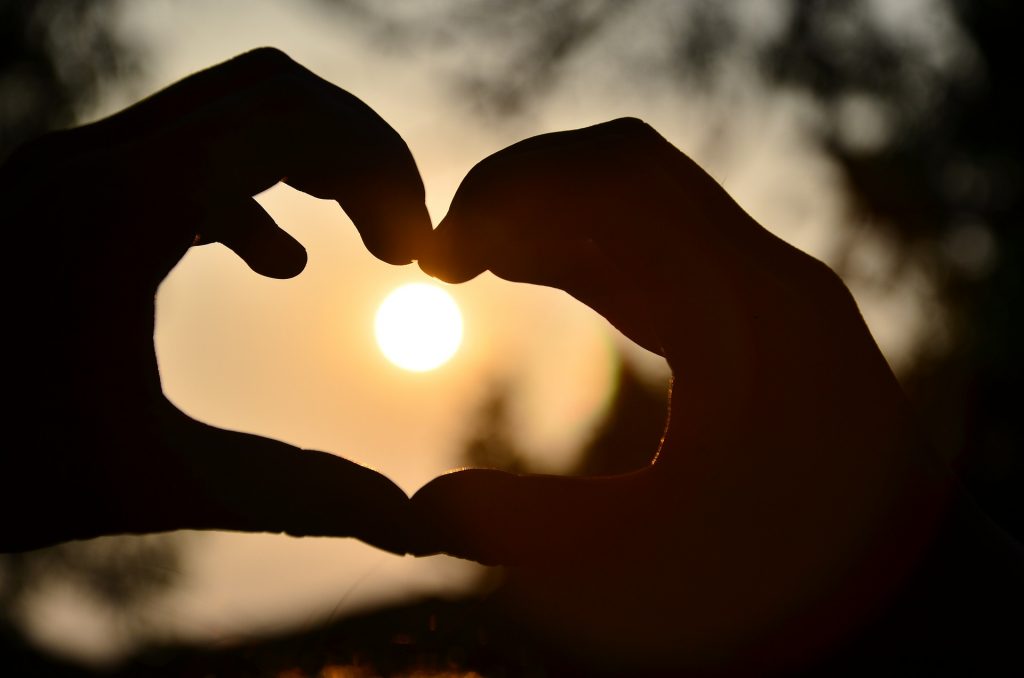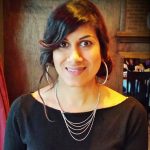
by Kimi Combow – Follow @browngirlmag
If you are feeling stuck when it comes to love, you are not alone. I was once there, wondering, “Why am I still single? What am I doing wrong?” In my early twenties, I felt that my life was complete and so marriage was never a priority for me. I was a career-woman and wanted to pursue a fulfilling career (which I switched a few times). I even went back to school a couple of times, the last time being at the age of 30. At this point in life though something had changed—I was open to the idea of finding a partner. It’s not like I ever was against the idea of getting married, as I know some of my family members thought, but I just wasn’t finding the connection I was looking for.
My life was busy with traveling, friends, my career, spirituality, and laughter; but I wasn’t satisfied because I wanted to share my life with someone. Generally, I was quite positive about this struggle of mine, but at times it was very frustrating.
My brother died when I was 27, and relatives would insist that I get married so my parents would have a “son.” This made me angry because my brother just died and I didn’t need the “marriage pressure” in addition to my grieving of my only sibling. When I went back to school to pursue my masters at the age of 30, my parents would say things like, “Just get married now, forget school.” I knew I wanted to go back to school to pursue my passion but I wasn’t disregarding their suggestions and concerns either; I knew that I wanted to get married one day too. I told my parents to be patient and that everything would fall into place, marriage would come because it was definitely on the cards.
I eventually came to a conclusion about what was wrong in my journey of finding love—a little late, but better late than never. It was not until my early 30’s that I realized how much of a wall I put up with men; I started to work on my fears and learn to open my heart. No wonder I wasn’t feeling a connection with anyone!
But this realization wasn’t alone to help me find a partner. A couple of years later, I took training on a modality called “Eye Movement, Desensitization, and Reprocessing” (EMDR). As a counselor, I wanted to offer more help to clients who were struggling with traumatic memories. And it was during this training that I realized even I had past trauma and it was important to address its implications; it was mostly these traumatic memories that made it difficult for me to initiate a romantic relationship with any man. Once I healed my past, it wasn’t long before I made room for love in my heart I met my husband.
So, if you are feeling stuck between not being able to find love and wanting to find love, ask yourself the following questions: Is my heart open to love? Am I able to allow myself to feel vulnerable in a relationship?
If the answer to these questions is “no” then this means you are not quite ready to meet someone and forging a relationship will only frustrate you. Work on yourself first so that you are in a position to allow love in. If you devote time to heal a troubled past it will, in turn, help you feel safe enough to open your heart to that someone special. Your “stuckness” has nothing to do with what you are doing, and everything to do with how you are being.
If you are wondering how to determine whether your feelings are open to accepting a romantic relationship, these hints will help you realize whether you’re coming from a closed place:
- You feel tense/fearful when meeting potentials.
- You feel fearful even thinking about meeting someone.
- You want to know everything about the other person but aren’t comfortable talking about yourself.
- You find it difficult to share your feelings and may use humor as a front. You keep conversation superficial.
- You are afraid to feel vulnerable/ you may come across as guarded.
- You find yourself in a pattern of relationships. ie. Relationships where you feel you aren’t treated well, or with partners you feel you can’t trust, or they like you but you aren’t that into them, etc.
- You find yourself over-analyzing/over-thinking. In other words, you are too much in your head and not at the moment.
- You feel not good enough/insecure with potential partners.
- You don’t connect with any potential you meet, at any level.
These are some examples that may indicate you are blocked or that you are not in a place to allow in love. If you have discovered or know that you are coming from a closed place (ie. your heart is not open), there is hope! I am excited for you to explore a new path in love because everyone’s able to work towards healing themselves and past memories that keep you stuck.
You deserve a fulfilling relationship and I am excited to say, with some work, you can have it!
 Kimi Combow-Gill grew up in a South Asian family in the Vancouver area of BC, Canada. She graduated from UBC with a Masters in Counseling Psychology and has been a counselor for over 10 years. She is a Registered Clinical Counsellor with the BC Association of Clinical Counsellors. She works in the school system and has a private practice in Coquitlam, BC. Kimi’s personal life experiences, as well as professional experience, led her to write her debut book “Still Single? It’s Not What You Are Doing, It’s How You Are Being.” Kimi’s hope is that people will be guided to allow love into their life by reading her book. She enjoys living life from her heart and loves to laugh, dance, sing, the ocean, nature and help others.
Kimi Combow-Gill grew up in a South Asian family in the Vancouver area of BC, Canada. She graduated from UBC with a Masters in Counseling Psychology and has been a counselor for over 10 years. She is a Registered Clinical Counsellor with the BC Association of Clinical Counsellors. She works in the school system and has a private practice in Coquitlam, BC. Kimi’s personal life experiences, as well as professional experience, led her to write her debut book “Still Single? It’s Not What You Are Doing, It’s How You Are Being.” Kimi’s hope is that people will be guided to allow love into their life by reading her book. She enjoys living life from her heart and loves to laugh, dance, sing, the ocean, nature and help others.




